Introduction
Maintaining proper hygiene practices is crucial for ensuring the health and well-being of your baby. Babies have delicate skin and immune systems, making them more susceptible to infections and illnesses. In this article, we will explore essential hygiene practices that every parent should follow to keep their baby clean and healthy.
Bathing
Bathing is an important hygiene practice that helps keep your baby clean and refreshed. Here are some tips to ensure a safe and effective bathing routine:
- Frequency: Newborns don’t need to be bathed daily. Two to three times a week is sufficient, as excessive bathing can strip their delicate skin of natural oils.
- Water temperature: The water should be lukewarm, around 37°C (98.6°F). Use your elbow or a bath thermometer to check the temperature before placing your baby in the water. Avoid hot water, as it can scald their sensitive skin.
- Gentle handling: Support your baby’s head and neck while bathing them. Use a mild, baby-safe cleanser and a soft washcloth or sponge to gently clean their body. Pay special attention to the diaper area, neck folds, and skin creases.
- Drying and moisturizing: After bathing, pat your baby dry with a soft towel, paying attention to all the skin folds. Apply a gentle, hypoallergenic moisturizer to keep their skin hydrated.
Diapering
Proper diapering is essential for maintaining good hygiene and preventing diaper rash and infections. Follow these guidelines for effective diapering:
- Frequent diaper changes: Change your baby’s diaper frequently, at least every 2-3 hours or whenever it becomes soiled. Leaving a wet or soiled diaper on for too long can lead to skin irritation and diaper rash.
- Proper cleaning: Use fragrance-free baby wipes or a soft washcloth with warm water to clean your baby’s diaper area during each diaper change. Wipe from front to back to prevent the spread of bacteria.
- Diaper cream: Apply a thin layer of diaper cream or petroleum jelly to create a protective barrier between your baby’s skin and moisture. This helps prevent diaper rash and irritation.
- Air out time: Give your baby some diaper-free time every day to allow their skin to breathe and reduce the risk of diaper rash. Place a waterproof mat or towel underneath to catch any accidents.
Skin Care
Your baby’s skin is delicate and requires special care. Follow these tips to maintain healthy skin:
- Choosing the right products: Use gentle, hypoallergenic baby products that are free from harsh chemicals, fragrances, and dyes. Look for products specifically formulated for babies.
- Bathing products: Use a mild, tear-free baby shampoo and body wash during bath time. Avoid using adult soaps or bubble baths, as they can be harsh and drying for your baby’s skin.
- Sun protection: Protect your baby’s delicate skin from the sun by keeping them in the shade, dressing them in lightweight, protective clothing, and applying a baby-safe sunscreen with at least SPF 30 to exposed areas.
- Moisturizing: Apply a baby-safe, hypoallergenic moisturizer to your baby’s skin after bathing to keep it hydrated and prevent dryness. Focus on areas prone to dryness, such as the face, hands, and elbows.
Nail Care
Keeping your baby’s nails clean and trimmed is important to prevent scratching and potential infections. Here’s how to safely care for your baby’s nails:
- Trimming: Use baby nail clippers or blunt-edged scissors to trim your baby’s nails. Choose a well-lit area and hold your baby’s hand securely to avoid accidental cuts. Trim the nails straight across to prevent ingrown nails.
- Filing: If you’re uncomfortable with nail clippers, you can use a soft nail file to gently smooth your baby’s nails. Be cautious and avoid filing too vigorously, as it can cause discomfort.
- Timing: Choose a time when your baby is calm and relaxed, such as after a bath or during naptime. This can make the nail care process easier and less stressful for both you and your baby.
- Avoid biting: Do not bite or peel your baby’s nails, as it can introduce bacteria into their delicate skin and increase the risk of infection.
Oral Hygiene
Oral hygiene is essential for your baby’s overall health and to promote healthy gums and teeth. Follow these guidelines for proper oral care:
- Gum care: Even before your baby’s teeth come in, gently wipe their gums with a clean, damp cloth or a soft silicone finger brush after feedings. This helps remove bacteria and prevent the buildup of plaque.
- Toothbrushing: Once your baby’s first tooth appears, start brushing it with a baby-sized toothbrush and a pea-sized amount of fluoride toothpaste. Brush their teeth twice a day, using gentle circular motions. Encourage your child to spit out the toothpaste but avoid rinsing with water to allow the fluoride to continue protecting their teeth.
- Avoid bottle in bed: Avoid putting your baby to bed with a bottle of milk or juice, as it can lead to tooth decay. If your baby needs a bottle to fall asleep, fill it with water instead.
- First dental visit: Schedule your baby’s first dental visit around their first birthday or within six months of their first tooth eruption. This allows the dentist to assess their oral health and provide guidance on proper dental care.
Conclusion
Maintaining proper hygiene practices for your baby is essential for their health and well-being. Bathing, diapering, skin care, nail care, and oral hygiene are all important aspects of a comprehensive hygiene routine. By following these guidelines and using baby-safe products, you can ensure that your baby stays clean, comfortable, and healthy. Remember to always consult with your pediatrician or healthcare provider if you have any specific concerns or questions about your baby’s hygiene routine.


